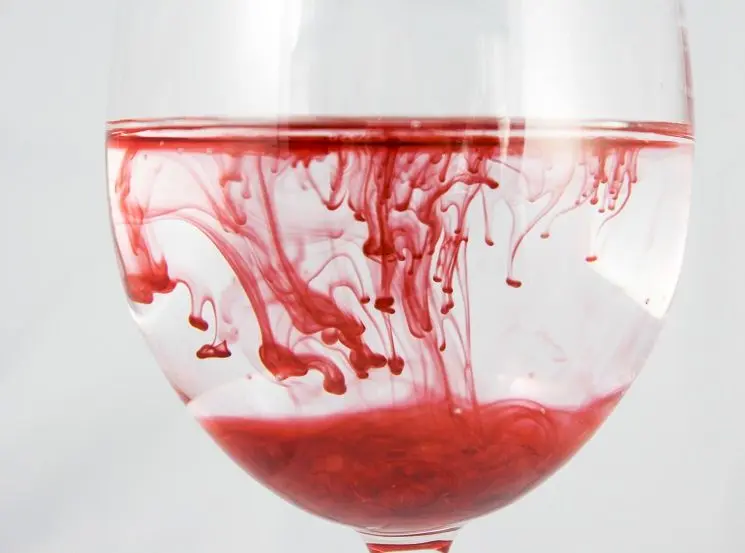It is widely believed that alcohol in small quantities is good for the cardiovascular system. Part of the statement is true, as numerous studies have shown that red wine lowers cholesterol and prevents the formation of blood clots. At the same time, cardiologists categorically do not advise drinking alcohol as a means of preventing heart disease, since the topic has not been studied enough. Alcohol affects blood clotting, which can have both positive and negative effects.
How alcohol affects the blood
Blood coagulation is one of the most important biological processes responsible for stopping bleeding. The body responds to injury with active platelet activity. Sticky cells rush to the site of damage, produce proteins and form a plug on the damaged vessel that closes the hole. The blood in this area becomes less viscous and acquires a curdled consistency, which prevents the penetration of pathogenic microorganisms into the wound.
Violations of hemostasis cause malfunctions in the immune system, liver disease, problems with the bone marrow and blood vessels. Pathologies of various origins lead to an increase in blood clotting, which becomes more viscous and thick. The blood flow slows down, and clots are no longer formed at the site of injury, but inside the vessel itself. Especially dangerous is the appearance of blood clots in the arteries leading to the heart and brain, as the result of impaired blood supply can be heart failure, myocardial infarction, and stroke.
Alcohol thins the blood almost immediately after it enters the body. Ethanol relaxes the walls of blood vessels, increases blood flow, and also inhibits the processes of hematopoiesis in the bone marrow. As a result, platelet production slows down, and the cells themselves become less sticky. Similarly, cardioaspirin, which is taken to prevent thromboembolism, acts on the blood.
In 2005, a group of scientists from Boston University published the results of a study on the relationship between alcohol consumption and hemostasis. The experiment involved more than five thousand men and women who were examined every four years for twenty years. Doctors came to the conclusion that moderate alcohol consumption leads to a low level of platelet activation, but categorically advised not to take alcohol as a medicine to thin the blood.

Excessive alcohol consumption has the opposite effect. The liver cannot process ethanol, which contributes to the accumulation of toxic acetaldehyde in the blood. The body tries to remove toxic substances and consumes an increased amount of fluid. Alcohol dissolves the membrane of dehydrated cells, which increases their “stickiness”. As a result, alcohol thickens the blood, blood flow slows down, and there is a danger of a blood clot breaking off and blockage of blood vessels. A sharp increase in blood viscosity can provoke the formation of an ulcer and cause internal bleeding.
Blood and types of alcohol
The change in coagulability depends not only on the amount, but also on the type of alcoholic beverages. The beneficial effect on the blood of red wine, saturated with the antioxidant resveratrol, has been noted more than once.
Useful properties of wine:
- increases high-density lipoprotein (“good” cholesterol);
- prevents the formation of cholesterol plaques;
- protects cells from the penetration of free radicals;
- reduces the risk of developing inflammatory processes.
Good cognac also helps to thin the blood and lower blood pressure due to the high content of polyphenols. During aging in oak barrels, the drink is saturated with organic acids, which act as antioxidants. A safe dose is no more than 50-100 ml at a time.
Vodka is one of the most harmful types of alcohol, as it is diluted ethanol, which is quickly absorbed into the blood, does not contain vitamins and minerals, and acts aggressively on blood vessels. Alcohol is slowly excreted and takes a large amount of fluid, which leads to dehydration of cells and an increase in blood viscosity. It is recommended to drink each serving of vodka with a glass of mineral water to make up for the loss of moisture.
It is dangerous to combine alcohol with the blood thinner warfarin. The breakdown of alcohol occurs in the liver, which cannot cope with the load and ceases to remove other substances. The concentration of the drug in the body rises, which can lead to bleeding. Recent generations of direct thrombin inhibitors are relatively safe and can be combined with alcohol.
Attention! Self-medication can be dangerous, consult your doctor.









